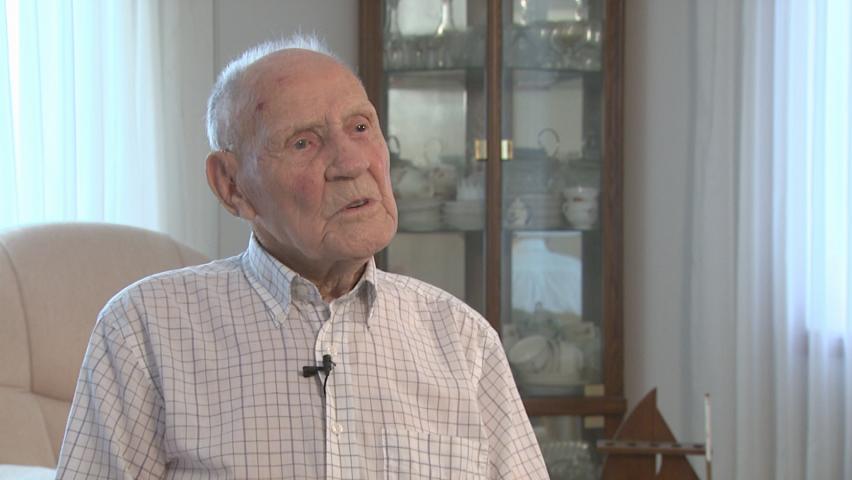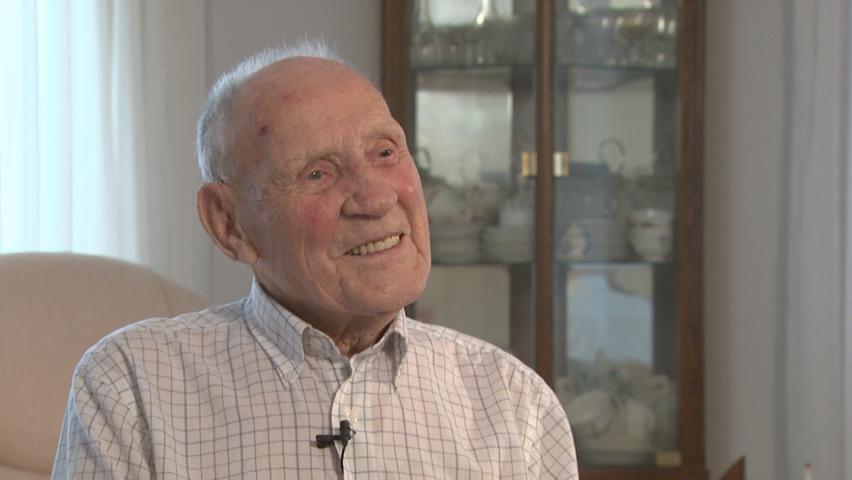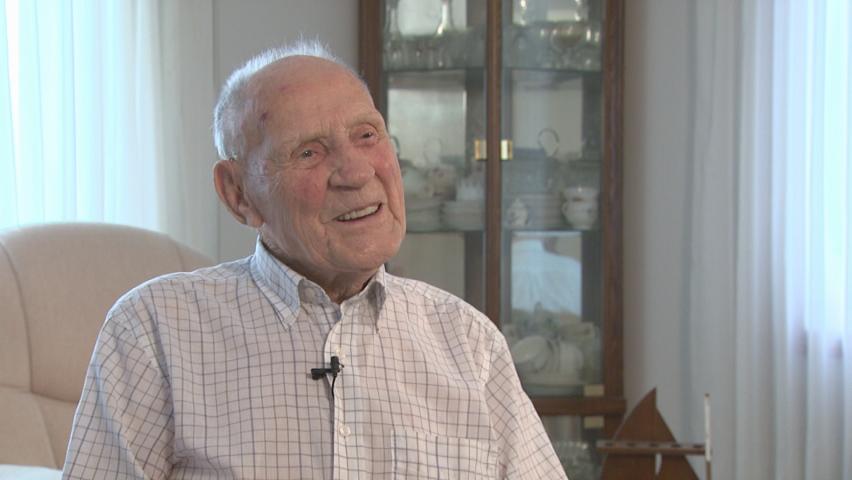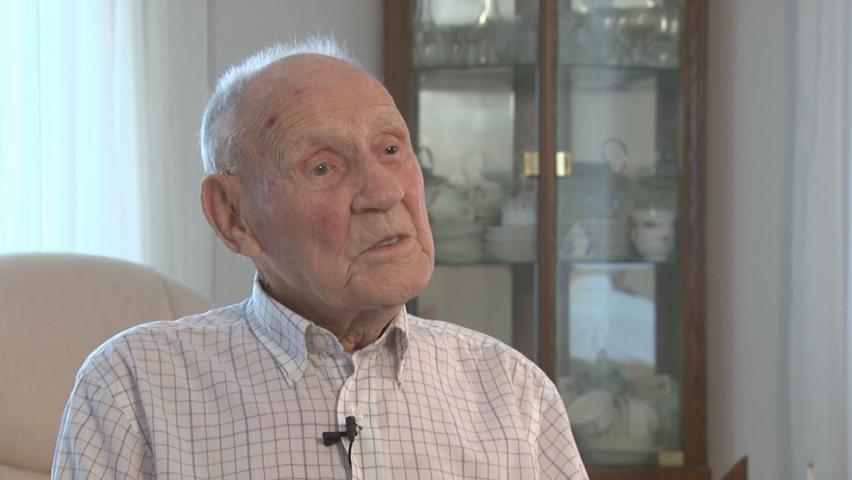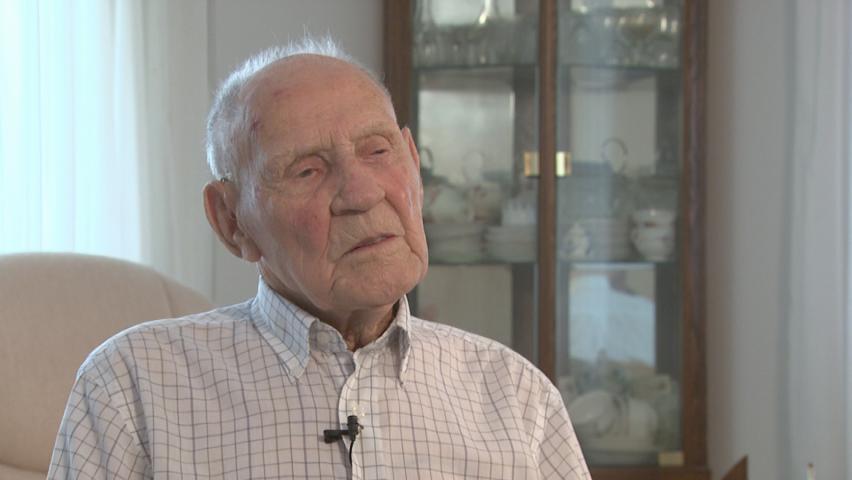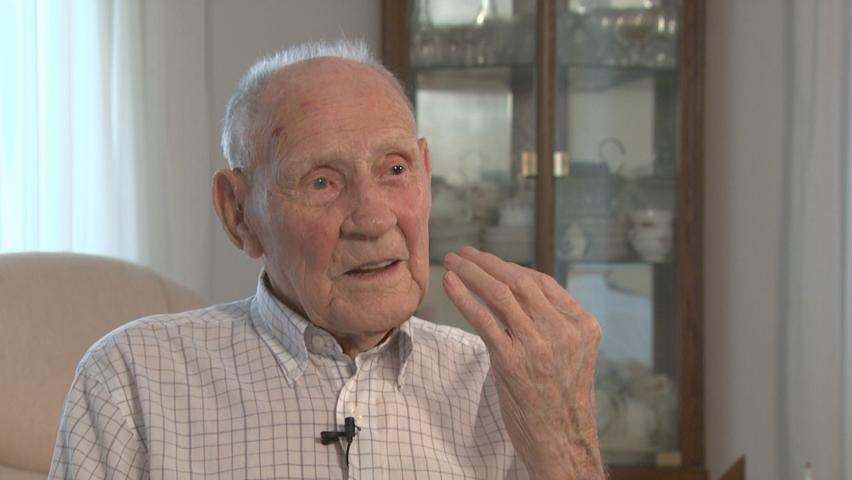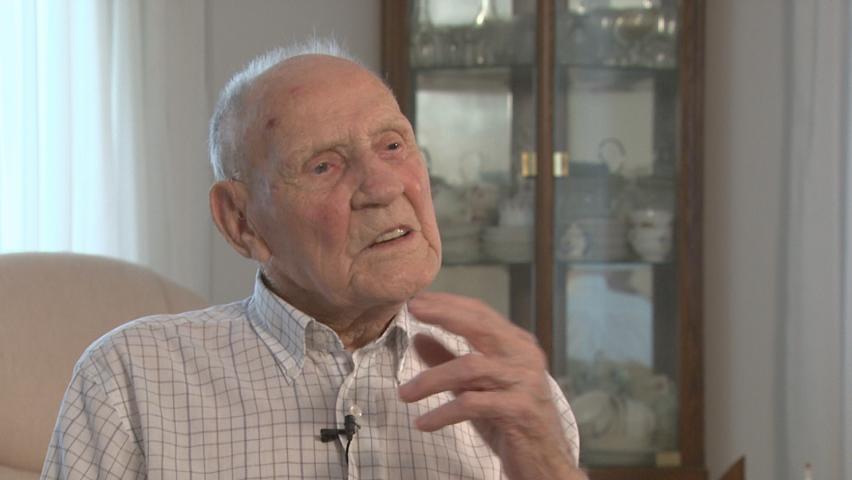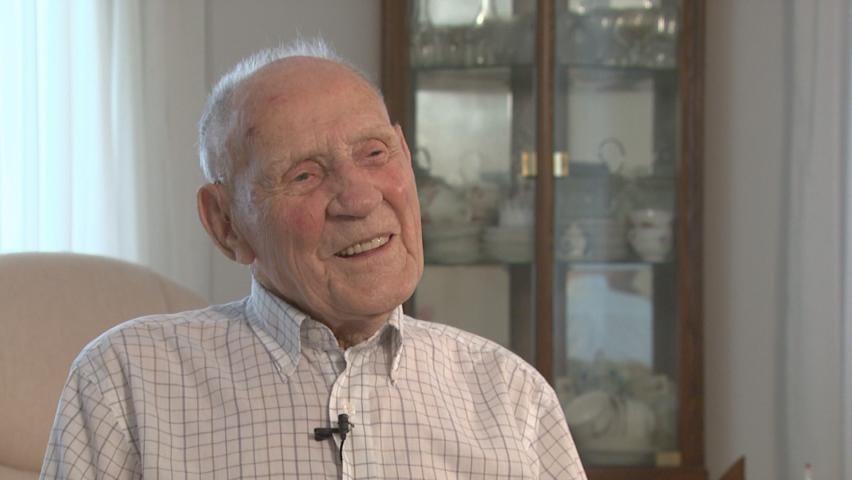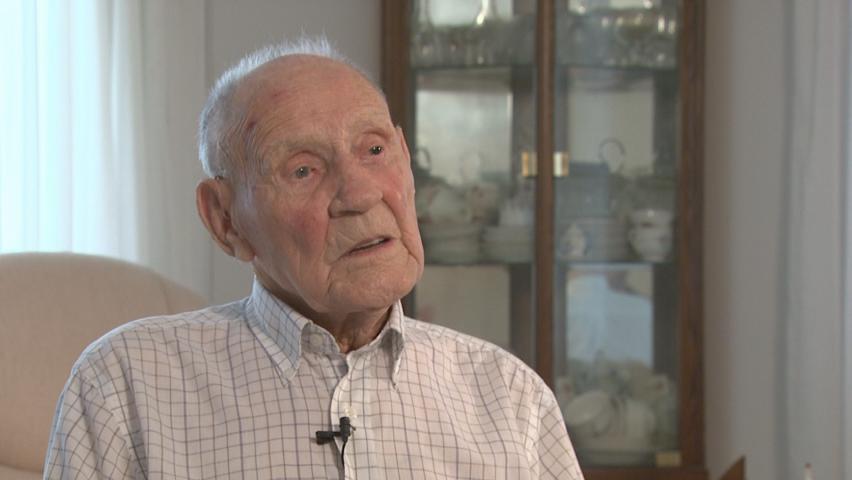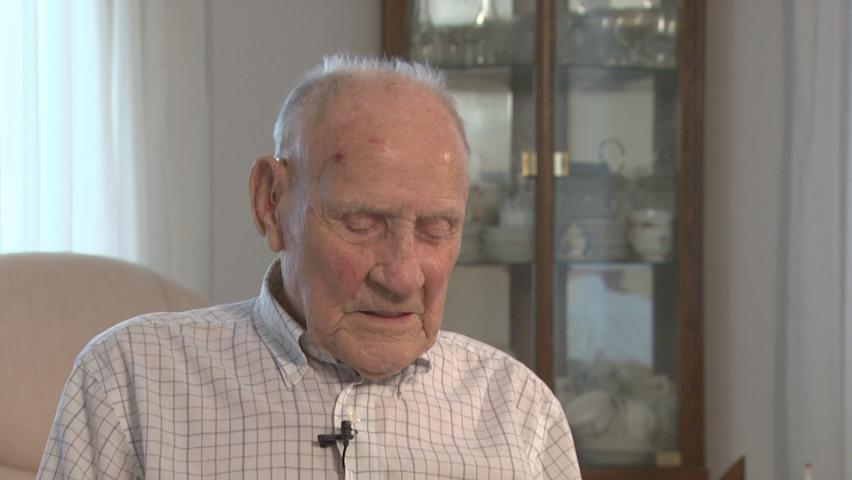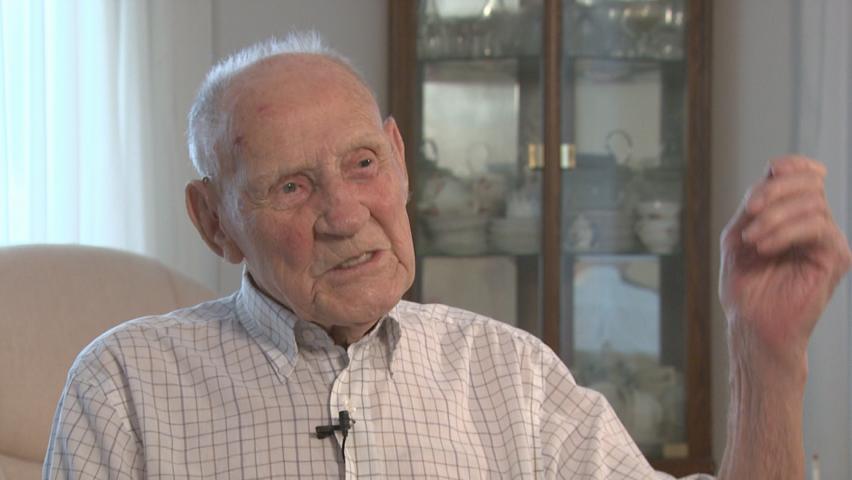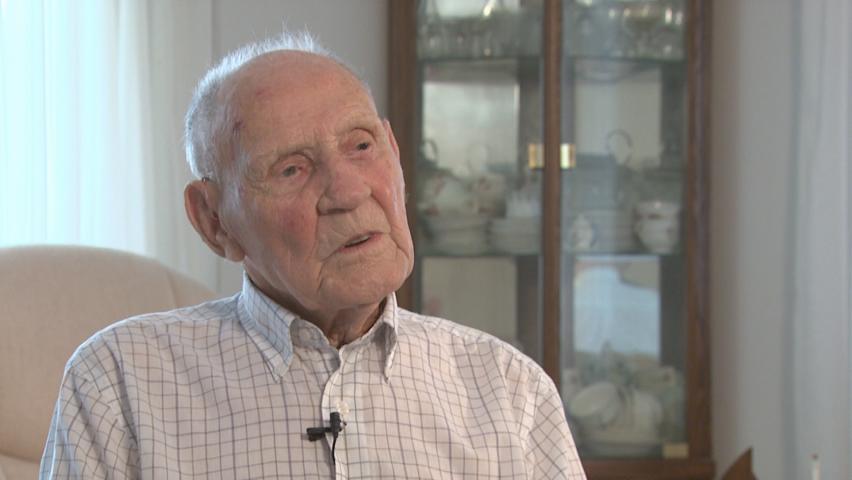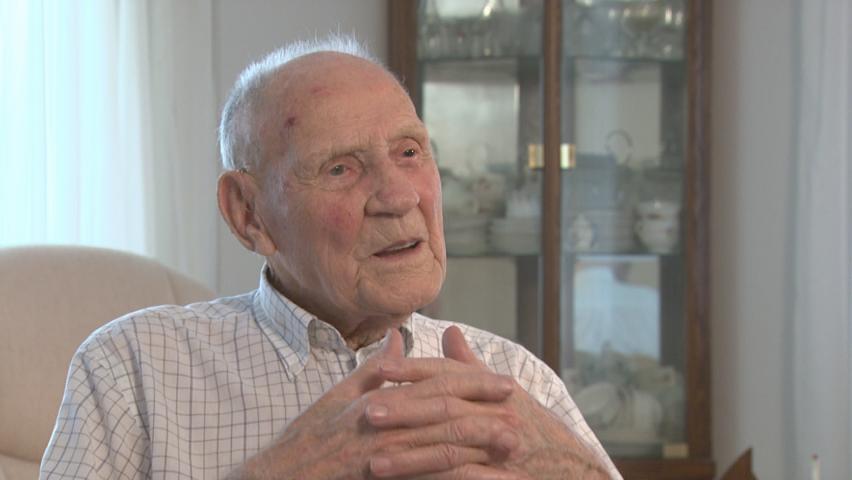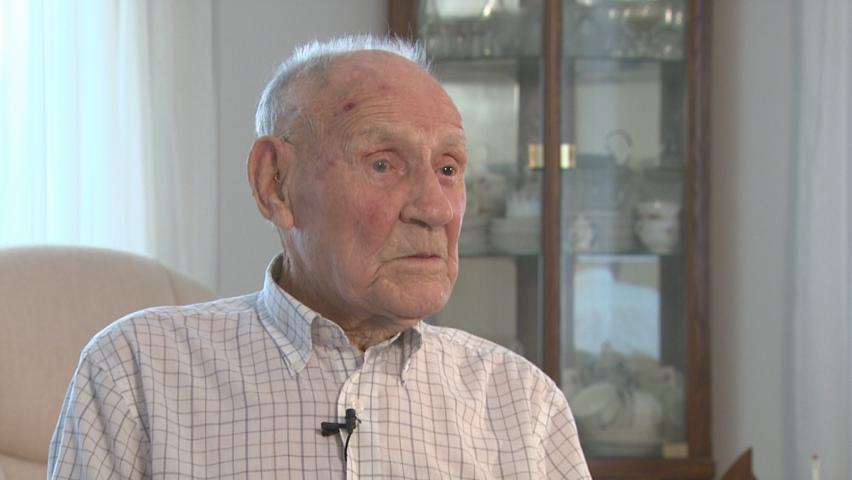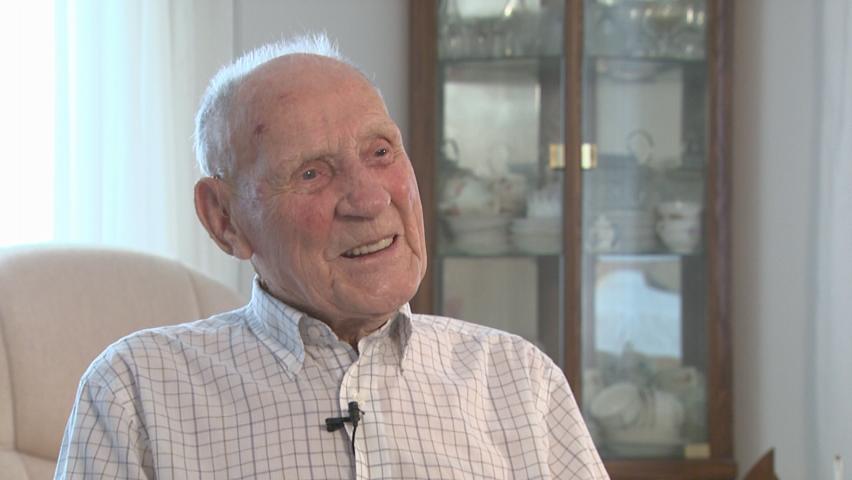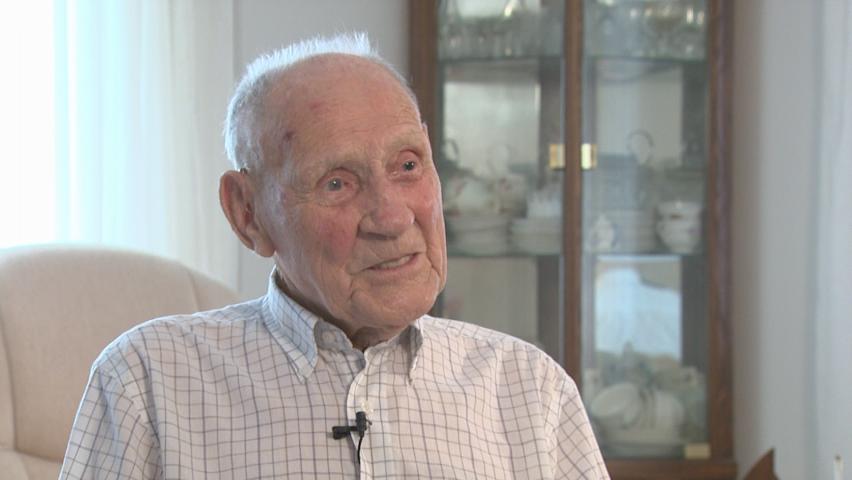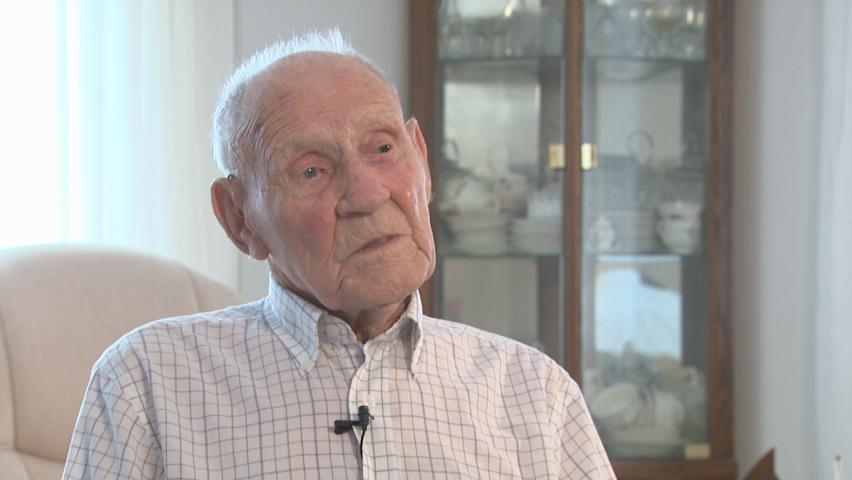Marching 22 Kilometres a Day
Heroes Remember
Marching 22 Kilometres a Day
Transcript
Description
Mr. Cole recalls the marches and witnessing horrific sights along the way.
Elmer Cole
Mr. Elmer Cole was born in Roche Percee, Saskatchewan on December 22, 1919. At age 15 he started working and left school with a grade eight education. In 1940 he joined with the South Saskatchewan Regiment taking basic training in Winnipeg and in Feb. 41 he came back to Brandon, Manitoba for mechanical training, switching over to The Calgary Tanks as a trooper on the Churchill tanks. Mr. Cole travelled overseas to England where he was given more training until the summer of ’42 when the Dieppe Raid occurred. Mr. Cole fought through the battle only to surrender with other Canadian soldiers where he became a POW until ’45 when they were set free. After returning to Canada, Mr. Cole worked with the Department of National Defence, then carried on as a mechanic but with the strong desire to always be a wheat farmer, he and his wife bought a farm in Oak bank, Manitoba until he retired at the young age of 54. Mr. Cole and wife Isabel adopted two boys. Now widowed, Mr. Cole spends much of his time playing cards and socializing with residents of his retirement home as well as spending time with his grandchildren. In 2005 Mr. Cole was presented with an Honorary Life Member certificate of the Kiwanis Club in his local community. Presently, at age 97, Mr. Coles continues to enjoy a relaxed and healthy lifestyle.
Meta Data
- Medium:
- Video
- Owner:
- Veterans Affairs Canada
- Recorded:
- July 29, 2017
- Duration:
- 3:52
- Person Interviewed:
- Elmer Cole
- War, Conflict or Mission:
- Second World War
- Location/Theatre:
- Dieppe
- Battle/Campaign:
- Dieppe
- Branch:
- Army
- Units/Ship:
- Calgary Tanks
- Rank:
- Trooper
Related Videos
- Date modified:



